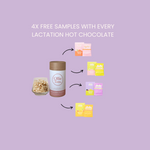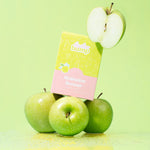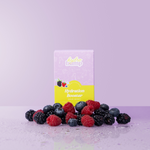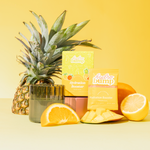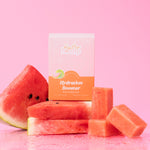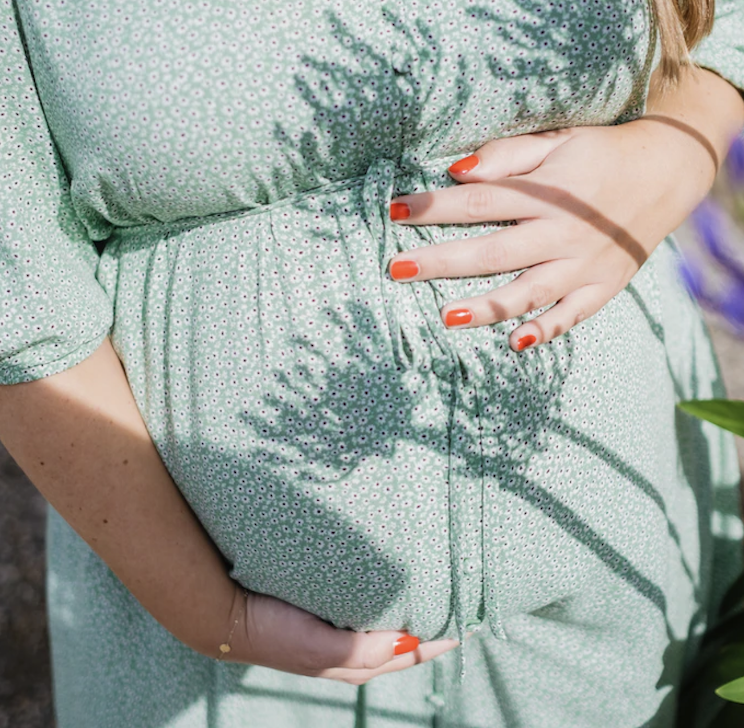Pregnancy is a time of rapid change. Your body is not only supporting your own health but also nourishing a growing baby. One of the biggest shifts is the increase in blood volume. By the second trimester, your blood volume may rise by nearly 50%. This change increases your body’s need for fluids every single day.
Hydration is more than just quenching thirst. It supports:
- Energy levels: Dehydration often causes fatigue, which can feel more intense during pregnancy.
- Digestion: Adequate fluids keep digestion moving smoothly and help prevent constipation, a common pregnancy symptom.
- Nausea relief: Small, steady sips of fluids can ease queasiness and make morning sickness more manageable.
- Circulation: Water helps transport nutrients and oxygen to your baby.
- Overall comfort: Hydration reduces dizziness, headaches, and overheating.
Simply put, hydration is one of the easiest and most effective ways to care for yourself and your baby throughout pregnancy.
Key Features to Look for in Pregnancy-Safe Hydration Products
Not all hydration products are equal. Some are designed for athletes, others for everyday use. During pregnancy, it’s important to choose products that are both safe and effective.
Low Sugar Content
Many sports drinks are loaded with sugar. While sugar gives a quick energy boost, too much can lead to energy crashes, weight gain, or gestational diabetes risks. The best hydration products for pregnancy are low in added sugars but still provide electrolytes.
Electrolyte Balance
Electrolytes—such as sodium, potassium, and magnesium—help your body maintain fluid balance. These minerals prevent dehydration, reduce muscle cramps, and support steady energy levels. Look for balanced formulas instead of extreme doses.
Safe Ingredients
Pregnancy-safe hydration products should be free from caffeine, artificial colours, harsh preservatives, or unnecessary additives. Always check labels to avoid ingredients that may worsen nausea or pose risks.
Convenience
Between appointments, work, and daily life, convenience matters. Sachets or hydration powders make it easy to stay hydrated without carrying bulky bottles. They’re portable and allow for controlled portion sizes.
Flavour Variety
Morning sickness can make strong or repetitive flavours hard to tolerate. Choosing products with mild or varied flavour options helps prevent taste fatigue and makes hydration more enjoyable.
Common Types of Hydration Products for Expectant Mothers
Pregnant women have many choices for hydration. Here’s a closer look at the most common options:
Electrolyte Drinks
These are popular because they replace fluids and electrolytes quickly. The key is to choose pregnancy-friendly formulas that are low in sugar and free from caffeine or artificial additives.
Hydration Powders
Sachet mixes and tubs of hydration powder are convenient. Sachets provide pre-measured portions, making it easy to control intake, while tubs allow flexibility if you want to adjust strength or flavour.
Prenatal Supplements with Hydration Support
Some prenatal vitamins include ingredients that support hydration, such as magnesium or electrolytes. These are not replacements for fluids but can complement hydration routines.
Homemade Options
Simple DIY hydration solutions can also be effective. Examples include:
- Infused water with cucumber or lemon
- Diluted fruit juice with a pinch of salt for electrolytes
- Coconut water, which naturally contains potassium
While these are refreshing, they may not provide the same precise balance as professionally formulated products.
How to Compare Products: What Matters Most
With so many hydration products available, it’s easy to feel overwhelmed. Use these factors to guide your choice:
Ingredient Transparency and Safety Approvals
Look for clear labels and avoid products that hide ingredients under vague terms. Products approved or recommended for pregnancy are safer choices.
Nutritional Profile
Check the levels of electrolytes, sugar, and vitamins. A balanced profile provides hydration without unnecessary extras.
Portion Sizes and Recommended Daily Use
Some products are designed for athletes, which means higher doses of electrolytes or sugars. Stick with pregnancy-safe serving sizes.
Cost vs Value
While some products may be more expensive, they may offer better safety, cleaner ingredients, or scientific backing. Choose quality over quantity.
Brand Credibility and Scientific Backing
Trust brands that are transparent, backed by research, or created specifically for pregnancy. This reduces the risk of hidden additives or unsafe ingredients.
Mistakes to Avoid When Choosing Hydration Products
Even with the best intentions, it’s easy to make mistakes. Here are some common ones to watch out for:
- Choosing high-sugar sports drinks: These are often designed for athletes, not pregnancy, and may contain caffeine or excessive sugar.
- Overconsuming electrolytes: Too much sodium or potassium can cause imbalances. Stick to recommended serving sizes.
- Ignoring labels: Always read ingredient lists to avoid hidden additives, artificial sweeteners, or unsafe herbs.
- Relying only on plain water: While water is essential, it doesn’t always replace electrolytes lost through vomiting or sweating. A mix of water and electrolyte solutions is often best.
By avoiding these pitfalls, you’ll make safer, smarter hydration choices.
Practical Tips for Safe and Effective Hydration
Knowing what to drink is only half the battle—how you drink matters too. Here are simple, pregnancy-friendly strategies:
- Spread intake throughout the day: Sip slowly instead of gulping large amounts.
- Pair with light snacks: Crackers or toast can help fluids settle better.
- Alternate between water and electrolytes: Balance both to avoid excess sugar or salt.
- Adjust flavours: If nausea strikes, switch to mild flavours or plain water.
- Stay prepared: Keep sachets or a refillable bottle with you at all times.
Consistency is the key. Even if you only sip small amounts, those sips add up.
Conclusion
The best hydration products for pregnancy are safe, gentle, and designed with expectant mothers in mind. Look for options that combine low sugar, balanced electrolytes, and natural ingredients. Avoid products that are overly processed, high in sugar, or filled with artificial additives.
Hydration is more than just water—it’s about supporting circulation, easing nausea, and giving your baby the best environment to grow. By choosing wisely, you can stay comfortable, energized, and confident throughout your pregnancy.
Every sip matters. With the right hydration products, you’re not just drinking for yourself—you’re supporting the health and well-being of your baby, too.
FAQs (Frequently Asked Questions)
Are all electrolyte drinks safe during pregnancy?
No. Many sports drinks contain caffeine, artificial colours, or too much sugar. Always choose pregnancy-specific or low-sugar options.
How much electrolyte solution should I drink daily?
It depends on your activity level, nausea, and fluid losses. A general rule is to alternate between plain water and small servings of electrolytes, following product guidelines.
Can hydration powders replace prenatal vitamins?
No. Hydration powders support fluid balance, while prenatal vitamins provide essential micronutrients. They work best together, not as substitutes.
Are natural DIY hydration solutions enough?
Sometimes. Infused water and diluted juice can help, but professionally formulated products offer precise electrolyte balance that homemade drinks may lack.
What should I do if I feel dehydrated despite drinking fluids?
If symptoms like dizziness, dry mouth, or dark urine persist, consult your healthcare provider. Severe dehydration during pregnancy requires medical attention.





